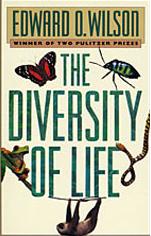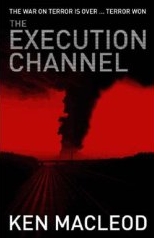That’s what it feels like this this Guardian article is doing, with its amazing revelations that the Blair government was just as clueless as the Bush junta in preparing for the War on Iraq:
The government’s top foreign policy advisers were as inept as their US counterparts in failing to see that removing Saddam Hussein in 2003 was likely to lead to a nationalist insurgency by Sunnis and Shias and an Islamist government in Baghdad, run by allies of Iran, the Guardian has learned.
None of Whitehall’s “Arabists” warned Tony Blair of the difficulties which have plagued the occupation. The revelation undermines the British claim that it was US myopia which was to blame for the failure to foresee what would happen in postwar Iraq.
[…]
Christopher Segar, who took part in Whitehall’s Iraq Policy Unit’s prewar discussions and later headed the British office in Baghdad immediately after the invasion, said: “The conventional view was that Iraq was one of the most Western-oriented of Arab states, with its British-educated, urban and secular professionals. I don’t think anyone in London appreciated how far Islamism had gone.”
Officials alone cannot be blamed. Ministers failed to ask serious questions. Blair never called on the experts for detailed analysis of the consequences of an invasion, officials say. He saw the war as Iraq’s liberation and felt any postwar problems would pale in the face of Iraqi delight.
See? It’s not that Blair and his cronies helped start an unnecessary immoral war that has so far killed between half a million and one million Iraqis, it’s just that they weren’t prepared for those horrible Islamists determined to spoil the liberation party. Nobody could have foreseen that the people of Baghdad would dislike having foreign troops coming in and bombing the powerplants and shooting up the neighbourhoods. Of course not, who could’ve thought that the Iraqis would not be pleased by seeing their American and British liberators?
Oh wait…
The truth is, Blair knew what the consequences of the war were going to be and didn’t care. As long as he could pretend he had personally liberated the Iraqis, he was happy. Now that the situation has become even worse than expected, his media chums are recruited to put the most positive spin on this disaster still possible: we didn’t mean it, it was the horrible Islamists that made us do it.
Bonus paragraph, awe-inspiring in its awful stupidity:
Contrary to the conventional view that the occupation’s problems stem mainly from failure to plan for postwar Iraq, they say there was plenty of planning, from how to react to mass refugee flows and a humanitarian crisis to the fallout from a sharp rise in the world price of oil. The real failure, they concede, was one of political analysis. Officials did not study how Iraqis would react to an occupation and what political forces would emerge on top once Saddam was removed.

